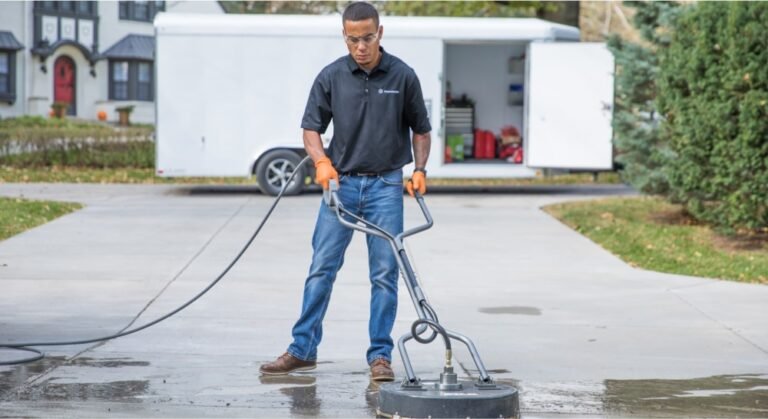You noticed cracks in your garage floor, patio, or driveway and decided to put them off for a while. The truth is that concrete damage doesn’t wait for anyone. If you ignore those small cracks, they could develop into large potholes. Concrete repair Bunnings can help with that.
You have choices regardless of whether you’re a die-hard do-it-yourselfer or would prefer to hire an expert. Which one is truly worth it? That is the key question. Let’s examine the benefits and drawbacks and honestly discuss repairing concrete yourself instead of hiring an expert.
Why Concrete Repairs Matter
Let’s discuss why you should be concerned about those cracks before we discuss do-it-yourself versus professional assistance.
- Safety first: Broken or uneven concrete is a trip hazard.
- Better aesthetics: Nobody wants a driveway that looks like a patchwork quilt.
- Adds value: Well-kept concrete creates a favourable impression if you sell your house.
- Prevents bigger (and pricier) problems: Early repairs keep moisture out and stop cracks from spreading.
DIY Concrete Repair Bunnings: The Breakdown
If you’re a hands-on person who loves a Saturday morning trip to Bunnings, you’ll love the DIY route.
Pros of DIY
- Budget-friendly: A bag of patching compound and some tools costs less than hiring a pro.
- Satisfying: There’s something seriously rewarding about fixing things yourself.
- Fast fix: You can knock this out for small cracks and chips in an afternoon.
Cons of DIY
- Limited to small jobs: DIY kits are great for hairline cracks or surface chips, not structural repairs.
- Skill required: If you mess up the mix or skip steps (like cleaning the area), your patch won’t last.
- Mess factor: It can get messy, especially if you’re new to concrete work.
DIY Tips for Concrete Repair
If you’re going the Bunnings route, here’s a simple checklist to follow:
- Clean the crack: Use a pressure washer or a wire brush to remove loose concrete and debris.
- Choose the right product: Bunnings sells epoxy fillers, resurfacing mixes, and patching compounds. Select the one that corresponds to the extent of the damage.
- Mix properly: To achieve the desired consistency, adhere to the directions. It won’t bond well if it’s too watery.
- Apply in layers: To prevent shrinkage cracks, apply in layers for deeper cracks.
- Smooth it out: Smooth it out by feathering the edges to match the surface around it.
- Seal it: Use a sealer to keep water out and stop further damage after drying.
When to Call the Professionals
DIY is a great way to fix small cracks, but it’s not always the best option. Here’s when you should definitely hire experts:
- Deep cracks or structural damage: It’s impossible to do it yourself if the concrete is sunken or has big pieces missing.
- Big surface areas: Resurfacing a whole driveway or patio is best done by someone with the tools and experience.
- Time-saving: If you can’t spare a weekend or don’t want to get your hands dirty, pros handle everything quickly.
- Reinforced concrete issues: A professional repair is needed if steel reinforcement is exposed or rusting.
Benefits of Hiring a Pro
- Guaranteed results: Many offer warranties on their work.
- Time-efficient: No learning curve, no trial and error, just a smooth finish.
- Expertise: They know what’s causing the damage and how to fix it properly.
- Better materials: Professionals often use commercial-grade products that last longer.
DIY vs. Pro: Quick Comparison
| Factor | DIY Concrete Repair Bunnings | Hiring Professionals |
| Cost | Low upfront cost | Higher, but includes labour & warranty |
| Skill Needed | Basic DIY skills | None (they handle it all) |
| Best For | Small cracks & chips | Large cracks, sinking slabs, full resurfacing |
| Time Needed | 1-2 days, depending on the project | Few hours to a day |
| Finish | Decent if done right | Professional, long-lasting |
Final Verdict
Concrete repair Bunnings is perfect if you’re dealing with small cracks and want a budget-friendly weekend project. But don’t take a chance; call the professionals if the damage is extensive, deep, or affecting the structure.
Doing it yourself can save money up front, but if done poorly, the repair may need to be redone or cost even more. Peace of mind (and a perfect finish) can sometimes be worth the cost.
FAQs
- Can I fix concrete on my own?
Yes! Bunnings do-it-yourself kits are ideal for minor chips and cracks.
- What is the duration of do-it-yourself repairs?
If done correctly, it can endure for many years, but sealing is essential.
- Do I require specialised equipment?
Simple, unpretentious tools: a mixing bucket, a trowel, and a wire brush.
- How can I tell if I need a professional?
Call an expert if the slab is uneven or has deep or wide cracks.
- Is sealing actually required?
Of course. It prolongs the life of your repair and protects it.


